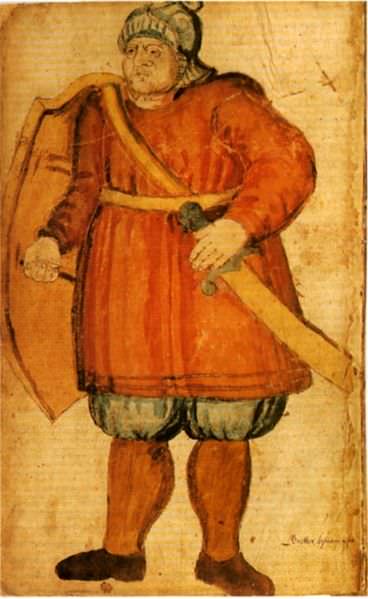… Comparing Havamal and Grettir's Saga.
"The Icelandic family sagas are replete with heroes, fighting men and strong women who stood with their teeth to the wind and carved a life for themselves out of an inhospitable world. Grettir's Saga is no exception to this. However, the saga was written relatively late, probably around 1325, and definitely shows the influence of Christianity on Northern European culture. The main character, Grettir, is often seen as "an obsessional character, repeating time and again the same actions" and even as "lacking in some of the ordinary human qualities which make for survival". Seen from a Christian standpoint this may well be true, and it is certainly true that Grettir is a violent man and that he rejects the society which, in its turn, rejects him. At the same time, viewing Grettir as a thug limits his true scope. Grettir is not an anti-hero but instead a man "born too late, and into a Christian and civilized world, where the heroic virtues are no longer sufficient". Examining the saga through the lens provided by the Poetic Edda, a collection of poems dating from the pre-Christian era or so-called "Viking Age," brings Grettir into clearer focus. Analyzing the ethics promoted by the Havamal, or the "Sayings of the High One" reveals Grettir's nature. This paper intends to conceptualize Grettir as a man whose ethical system remains closely tied to Viking Age heroic ideals.
A systematic reading of Grettir's Saga as a whole, while undoubtedly useful to proving my point, is beyond the scope of this paper. Instead I have chosen to perform a close reading of Chapter 19. It is here that Grettir begins to reveal himself as a hero worthy of the Viking Age, and here that we begin to see Grettir not just as a violent thug but also as a man with a distinct set of values best encapsulated by the Poetic Edda's Havamal. Translational accuracy is a key factor in any analysis of works not originally written in one‟s native tongue. Therefore, while I have chosen to use the Fox and Pálsson translation of Grettir's Saga, I have also decided to cite three different translations of the Havamal. Caroline Larrington, Lee M. Hollander, and Henry Adams Bellows' translations are all readily available for further study, and each shows distinct variations from the other. Citing multiple translations of the same Old Norse work can at times provide a deeper level of understanding, and since I am attempting to engage in a thorough analysis of Grettir while using only one chapter from the saga it is only appropriate to provide as much context as possible…"

Main page
PDF link
Amicalement
Armand

